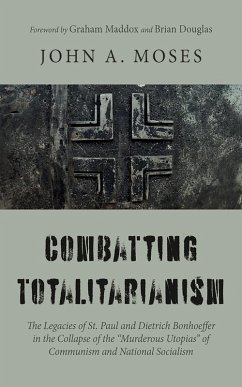St. Paul, the apostle to the gentiles, has bequeathed guidelines for both personal and political behavior to individual citizens and to states that have retained their relevance to humanity to this day. However, his statement in Romans 13 that "the powers-that-be are ordained of God" has been interpreted in conflicting ways, especially since the time of Martin Luther in sixteenth-century Germany. Luther's occasional insistence that the ruler had to be obeyed unquestionably led to a political culture in Prusso-Germany that was systematized by the philosopher G. W. F. Hegel (1770-1831). His teachings gave rise to the disastrous ultra-authoritarian regimes of both Marxist-Leninism (left-wing Hegelianism) and National Socialism (right-wing Hegelianism). The author of this book, being equipped with a long training in Prusso-German history, has explained how this happened and why both Imperial Germany and the Nazi Third Reich unleashed expansionist wars and justified them with ideologies that were both hostile to Western European and transatlantic democratic, parliamentary values. The author's familiarity with the contemporary history of both the liberal-parliamentary West Germany and the authoritarian communist East Germany has enabled him to portray the internecine German debate that was largely influenced by the remarkable ministry of the martyred Lutheran pastor Dietrich Bonhoeffer.
Dieser Download kann aus rechtlichen Gründen nur mit Rechnungsadresse in A, D ausgeliefert werden.









